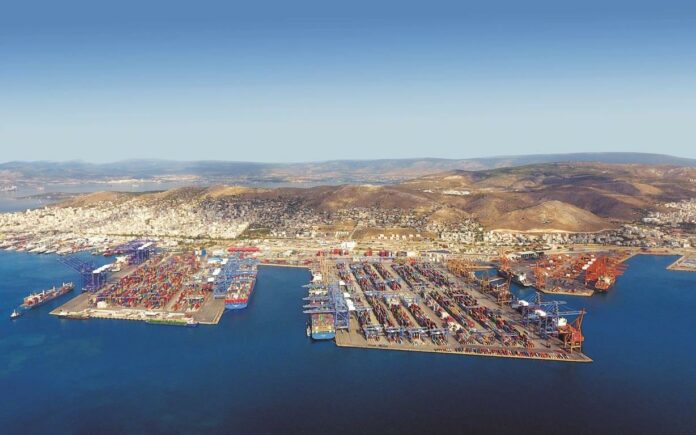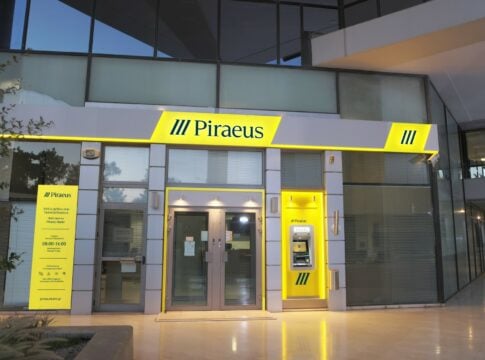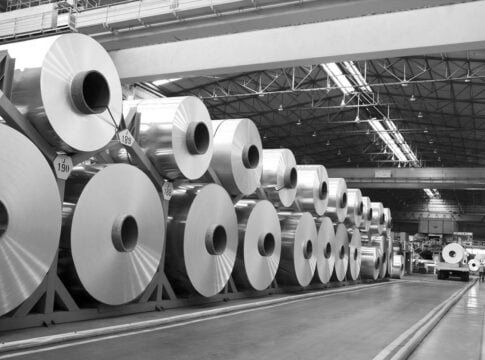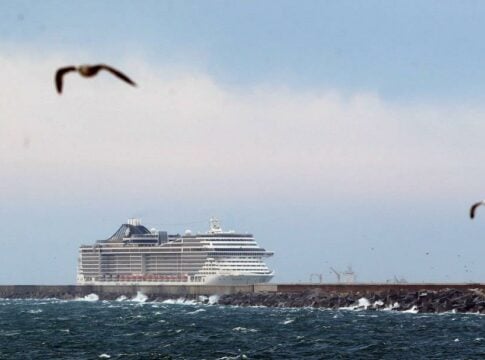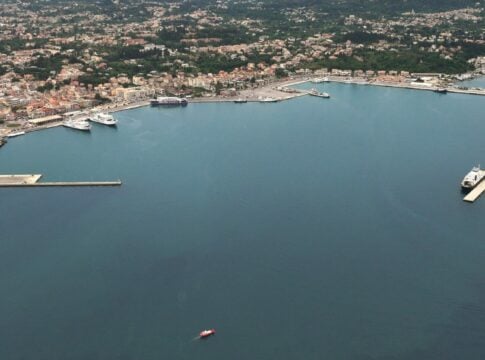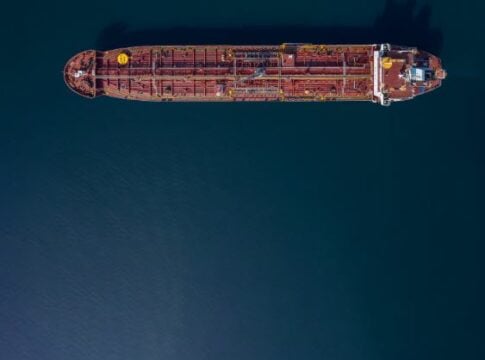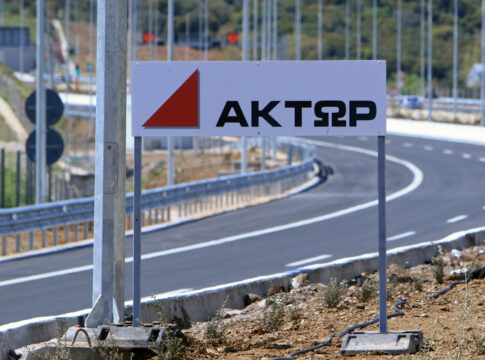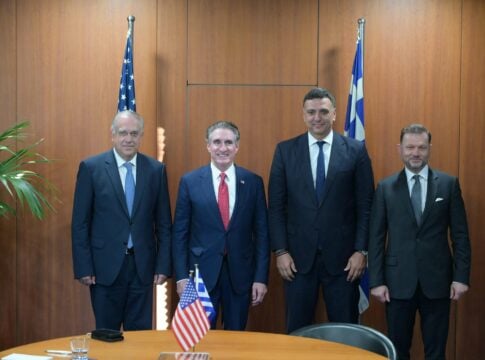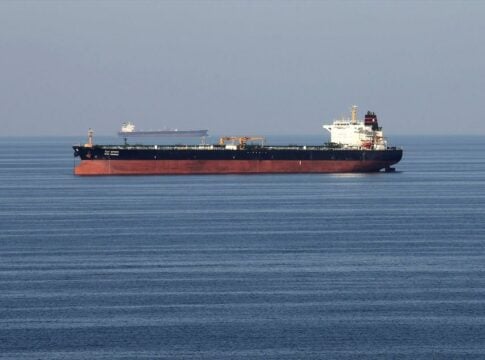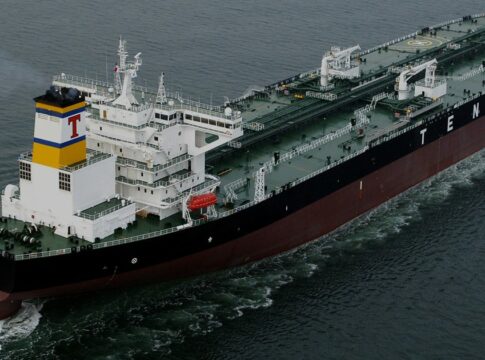In recent years, and especially after 2013, China has given a new positive dimension to international cooperation and connectivity among countries around the world. In 2013, Chinese President Xi Jinping proposed Belt and Road Initiative (BRI) which is unique in global economic history and aims to enhance policy, infrastructure, trade, financial and people-to-people connectivity, and to create new opportunities for the common development of all countries. BRI among other priorities seeks to fill the large infrastructure gap that constraining trade, openness and future prosperity. Infrastructure connectivity is the foundation of development through co-operation. For the achievement of this scope, the initiative promotes land, maritime, air and cyberspace connectivity, concentrate China’s efforts on key passageways, cities and projects and connect networks of highways, railways and sea ports.
All these years China has made critical investments in different parts of the world. According to “OECD Business Finance Report 2018” BRI investment projects are estimated to add over USD 1 trillion of outward funding for foreign infrastructure over the 10-year period from 2017 which undoubtedly have positive impacts on countries involved. Globally, by sector, the largest investment needs lie in transport and energy infrastructure.
One of the countries that has benefited a lot from Chinese investments under the “umbrella” of the BRI is Greece, which was the first European country that in August of 2018 formally joined China’s Belt and Road Initiative and is the first European “stop” of the sea route part of BRI (21st Century Maritime Silk Road).
Over recent years, especially after BRI announcement the bilateral relations between Greece and China are on a continuous upward trajectory. China’s imports from Greece have increased reaching nearly $1 billion in 2021, up nearly 26 percent year on year and 244 percent more than five years ago. Olive oil, dairy product, wine, safflower, and other high-quality products are increasingly gaining popularity among Chinese consumers.
In terms of investment, China has become Greece’s sixth-largest source of foreign investment and this cooperation can be seen in transportation, energy, communications, finance, and other fields. Τwo very important infrastructure investments of BRI in Greece are the acquisition of 67% of the port of Piraeus by COSCO Pacific Limited in 2016 with total expenditure (shares and upgrade investments) of about 1,5 billion euros and the acquisition of 24% of IPTO (Independent Power Transmission Operator) by State Grid Europe Limited in 2017 that invested 320 million euros. In this critical investment in energy sector, the Chinese company undoubtedly, except funds, contributes with the most advanced technology in the energy supply industry. In addition, the company has clearly stated its desire to undertake the electrical interconnection of mainland Greece with its islands, ensuring significantly lower electricity costs for consumers in those areas.
All these years, with the BRI gaining steam around the world, Greeks can be proud that host one of the most successful BRI projects which is an achievement and proof of win-win cooperation between two countries. Without any doubt, one of the most critical Chinese Overseas investments is the acquisition of majority stakes (67%) of Piraeus Port in Greece. The port of Piraeus is the largest port in Greece, with a coastline of more than twenty-four kilometers and a total area of more than five million square meters. The port of Piraeus is located at the intersection of the sea routes connecting the Mediterranean with Northern Europe and thanks to its geographical location allows large ships to access the Far East’s trade routes without significant deviation. Port’s significant location makes it a vital transport, commercial and logistic hub for tourism and communication connecting the Greek islands with the mainland and is a transit trade hub for the Balkan and Black Sea countries. The Chinese investment in the biggest port of Greece has become not only a flagship project in China-Greece cooperation but also a success case in global BRI collaboration. In November 2019, when Chinese President Xi Jinping visited the ancient port of Piraeus said: “We want to strengthen Piraeus’ transshipment role and further boost the throughput capacity of China’s fast sea-land link with Europe.”
The initial concession agreement which signed on 25th November 2008 between Piraeus Port Authority S.A. and the Chinese company aimed to develop and operate Piers 2 and 3 of the port of Piraeus in Greece. In 2009, the firm started managing the port’s container terminals, placing the then struggling harbor on an upward trajectory and breathing new life into the local economy. At this point it is worth noting that at that time, the port of Piraeus was not what it is today, so no other international firms were attracted to invest in the port. It was a port of great geostrategic importance but degraded without modern infrastructure.
Few years later, in 2016, and almost three years after President Xi proposed BRI, Chinese shipping firm, purchased a majority stake (67%) in Piraeus Port Authority S.A. (PPA S.A.). The evolution of the port since 2008 and especially since 2016 proves that China is looking to transform Greece’s Piraeus port into the biggest harbor in Europe — making it the most crucial transit hub for trade between Asia and Europe.
In 2020, the pandemic has been a major challenge for the entire planet and economies and has caused a major disruption in global maritime transportation, and as it was expected significantly affecting all ports around the world. Despite this, the Piraeus Port Authority (PPA SA) managed to successfully face the objective difficulties caused by the pandemic and produce spectacular financial results both for the company itself and for the Greek economy and society.
Ιt is impressive that in 2021, the port managed to achieve the highest profit levels in the history of the Port of Piraeus in all sectors with double-digit growth rates compared to 2020. In 2021, the investments from the Chinese company in new infrastructure, reconstructions of buildings, upgrades, new equipment, and machinery increased by 120% compared to 2020 and amounted to 36.7 million Euro. With the three Port piers reaching 5.3 million containers per year and due to the effective management during the pandemic, in 2021 the Port of Piraeus remained the top container port in the Mediterranean and one of the largest ports for integrated services in Europe, such as cruise and coastal services, plus car terminals and ship repair zones, and at the same time providing cruise and coastal shipping services.
On May 14, 2021 with the reopening of the Cruise in Greece, the sector gradually began to increase both in terms of calls and in terms of passenger traffic. The Port of Piraeus managed to serve a significant number of cruise ships in terms of calls by applying the COVID-19 Health Protocols. Total passenger traffic in 2021 amounted to 303,665 compared to 16,640 in 2020, recording an increase by 1,724.9%. Cruise ship calls also increased by 398.7%, with 379 calls compared to 76 in the previous year. Following the lifting of the restrictive measures on domestic maritime transport in Greece, coastal shipping activity recorded an increase in ferry routes and passenger/vehicle flows compared to the previous year. The total passenger traffic on domestic routes in 2021 increased by 14.7% to 11,896,187 compared to 10,372,523 passengers in 2020. Moreover, the vehicle handling sector increased by 11.1% namely, 2,521,898 in 2021 compared to 2,270,845 in 2020.
In 2021 the car terminal traffic was significantly improved, recording an increase by 40.6% due to the increase of both local and transshipment loads. The total traffic was 429,213 vehicles compared to 305,190 in 2020. Local volumes increased by 14.8% (from 87,310 in 2020 to 100,225 in 2021) while the transshipment volumes increased significantly by 51% (from 217,880 in 2020 to 328,988 in 2021).
The container terminal remained fully operational throughout 2021. The total traffic of Pier I increased by 13.9% (from 540,591 in 2020 to 615,510 TEUs in 2021) due to the increase of transshipment volumes and domestic cargo volumes. The transshipment volumes increased by 7.8% (from 445,949 in 2020 to 480,912 TEUs in 2021), mainly due to China’s contribution while domestic cargo increased by 42.2% (from 94,642 in 2020 to 134,598 TEUs in 2021) in line with its import/export growth.
In 2021 the ship repair sector served 141 ships compared to 121 in 2020 (+ 16.5%), while total occupancy days increased by 21.2% (from 958 to 1161 days). There was also an increase in the number of ships in the Ship Repair Zone with 264 ships in 2021 compared to 254 in the previous year (+4%). Finally, as of 2020 the measures and consequences of the pandemic encouraged the undertaking of repair works and the upward trend continued in 2021.
It is worth noting that the Chinese investor shows great importance to social responsibility and especially in environmental protection parallel with real development. The continuous and increasing contribution of port to the local and national economy is reflected in the creation of added value for the Greek economy in 2021, estimated at 0.76% of the country’s GDP. In addition, with 17.4m Euros in social security contributions and 27.6m Euros in taxes, the Company has contributed 0.06% to the state’s tax revenues.

The port maintained a strong pool of 1,126 suppliers with the majority coming from the local community while costs exceeded 68 million Euros, increased by 10% compared to 2020. In 2021, more than €5 million was invested in the health and safety of port’s employees as well as in the safety and security of company’s premises and facilities. They have doubled additional benefits to their employees in terms of health insurance, childcare and a range of other benefits. A typical example is the percentage of women holding positions of responsibility in port administration, which in 2021 exceeded 38% of the total staff.
Another very important figure is that the staff employment rate from the surrounding municipalities reached 43% in 2021 and in total the company created 4,279 direct and indirect jobs, equal to 0.12% of total employment in the country, thus providing income to more than 11 thousand fellow citizens. In addition, port’s authority has a positive impact on people and the society through a wide range of actions and interventions through its integrated support program, which targets the weak and vulnerable population groups, fights against poverty and promotes sports, while at the same time assists the young generations in their education and other important activities. In 2021, port’s Corporate Social Responsibility Program grew by 5.2% amounting to EUR 752,520 which proves that it is at the top of the Company’s priorities to achieve a balance between economic growth and its impact on environmental, social and governance levels.
Moreover, port’s authority shows strong commitment to the systematic pursuit of sustainable development and the high ESG performance of the Port of Piraeus are acknowledged with the inclusion of the port in the ESG list of the country’s 35 companies in the Athens Stock Exchange. Offering to society and pursuing green growth in the Port of Piraeus are key priorities of port’s administration strategy and a prerequisite for securing the future in terms of sustainability. Their main objective remains to minimize the impact of their activities on the environment and to create a Port Standard. Within this framework, their total environmental investments, including sea and land cleaning services, as well as environmental protection services, exceeded 1.5m Euros in 2021, an increase of 12.5% compared to 2020. PPA’s decision to produce “clean” energy in the Port by installing photovoltaic panels led to a significant reduction in CO2 emissions (515 tons).
Belt and Road Initiative is a unique project in global economic history that is developing and transforming together with the societies and the states and is adapted in current global circumstances in order to face the global challenges. Greece is a developed European country that during the most difficult period of its modern economic history due to the global financial crisis, no western international funds showed confidence in the Greek economy. At that time Chinese firms, under BRI invested a lot in Greece and when all the economic prospects were not favorable. The benefits of the Greek economy and society from the Chinese investments in every sector are indisputable and this is another proof that BRI is a win-win partnership between countries and that BRI is an initiative that aims for high quality development and contributes to societies.


